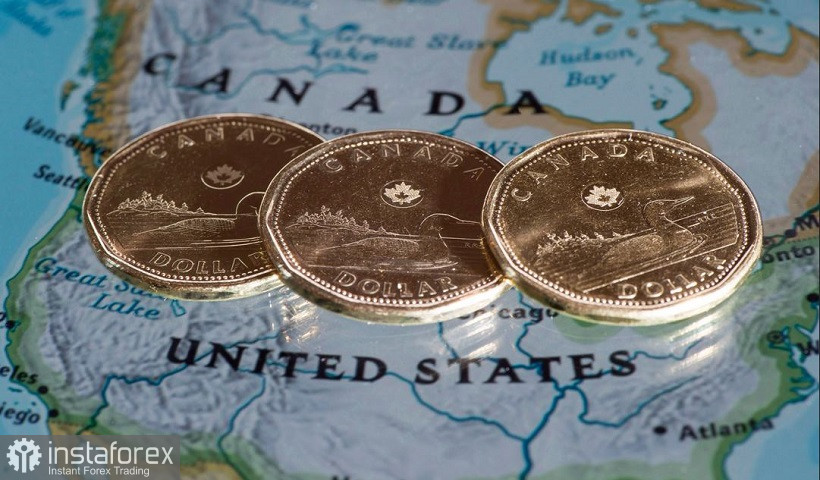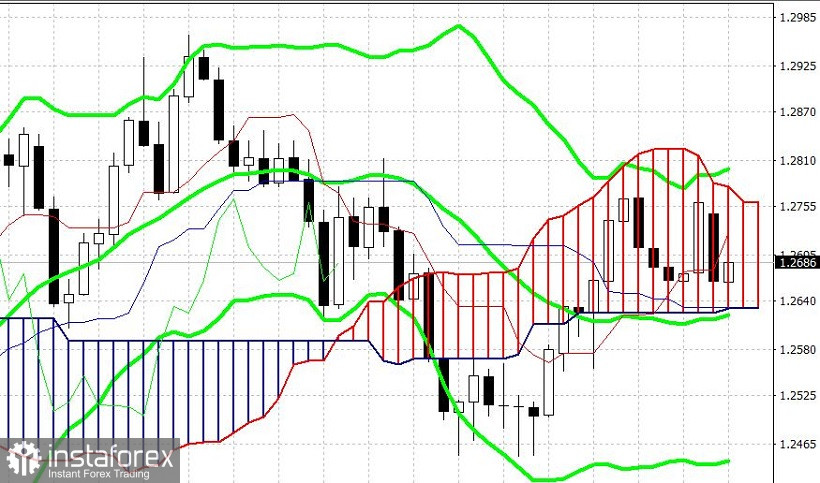The USD/CAD pair cannot decide on the direction of its movement. The Canadian dollar has been hovering within the 100-point price range for the third week now. First, the price fell to the level of 1.2660, then rose to the target of 1.2760. However, neither the bears nor the bulls of USD/CAD were able to develop a one-way movement. Contradictory fundamental signals do not allow traders to exclude short or long positions.
For example, the Bank of Canada's last meeting that was held on January 26 left more questions than answers. The Canadian dollar actually began to actively lose its position after the announcement of the results of the January meeting, yielding points to its American counterpart. Firstly, the Canadian regulator did not raise the interest rate, contrary to the expectations of many market participants. Most analysts said that the Central Bank should have increased the key interest rate by 25 basis points – from 0.25% to 0.50%. The markets put a 70% probability of this scenario in the prices, but the regulator kept the status quo at 0.25% instead.

The Governor of the Bank of Canada, Tiff Macklem, said at a press conference that he did not want to rush, but wanted to make a "balanced and thoughtful decision." At the same time, he made it clear that the Central Bank may raise the rate following the results of the March meeting. The accompanying statement also states that the Central Bank further considers the increase in rates necessary. However, the pace and extent of monetary tightening will depend on incoming data. Macklem emphasized that the rate would not increase "automatically". He also admitted that the regulator could take "one or two steps" and then take a pause in tightening to assess progress. Overall, he linked the rate of increase with the dynamics of key macroeconomic indicators, primarily in the field of inflation and the labor market.
That is why Friday's release hit the Canadian dollar so hard: the USD/CAD pair surged almost a hundred points up in a few hours.
Usually, key labor market data in the US and Canada are released on the same day and even at the same time. And since American Nonfarms set the tone for trading in all dollar pairs, Canadian numbers are on the sidelines – they are of interest to a narrower circle of traders. In the context of the USD/CAD pair, the Canadian dollar follows the US dollar, so the Canadian Nonfarms remain in the shadow of a more significant American release. But the "interests coincided" this time: quite good American data "layered" on the failed Canadian figures.
So, the number of employed in January decreased by 200 thousand at once against the expected decline of 170 thousand. This is a multi-month anti-record: the last time the indicator came out at about this level (-212 thousand) was in January 2021. The indicator fell into the negative area for the first time since May last year. The unemployment rate also showed a negative trend, rising from 6.0% to 6.5% (with growth forecast to 6.3%). It should be noted here that unemployment in Canada has been consistently declining for six months. The indicator reached the 6% mark in November and December, but it turned to the opposite direction in January. Therefore, the January growth (albeit of a minimal nature) is quite important for the Canadian dollar.
Another negative point is the decrease in the share of the economically active population, which fell to the level of 65.0% after the December growth to the target of 65.4%. This is the weakest result since May last year.
As a result, the Canadian labor market was definitely disappointing, allowing USD/CAD buyers to take the lead. However, they failed to go above the "ceiling" of the price range of 1.2660-1.2670. Dollar bulls need an additional information impulse, which is likely to be the release of data on the growth of US inflation in January. The publication of the report is scheduled for Thursday (February 10), and according to preliminary forecasts, the consumer price index will show a positive trend. In particular, the core index should rise to 5.9%. If the report is released at least at the predicted level, not to mention the "green zone", the US currency will significantly strengthen its position. In this case, the pair will be able to go beyond the above range, approaching the borders of 1.28.

Technically, the pair on the daily timeframe is trading between the middle and upper lines of the Bollinger Bands indicator (which indicates the advantage of the upward scenario), as well as in the Kumo cloud. If USD/CAD traders break through the level of 1.2760 (the upper limit of the cloud), the Ichimoku indicator will form a bullish "Line Parade" signal. In this case, the downward target will be the next resistance level of 1.2810, which corresponds to the upper line of the Bollinger Bands indicator on the same timeframe. Given the indecision of the head of the Bank of Canada and the noticeable hawkish attitude of the Fed, traders can consider longs in the medium term. Strong US inflation will only strengthen the position of USD/CAD bulls.
 English
English 
 Русский
Русский Bahasa Indonesia
Bahasa Indonesia Bahasa Malay
Bahasa Malay ไทย
ไทย Español
Español Deutsch
Deutsch Български
Български Français
Français Tiếng Việt
Tiếng Việt 中文
中文 বাংলা
বাংলা हिन्दी
हिन्दी Čeština
Čeština Українська
Українська Română
Română

